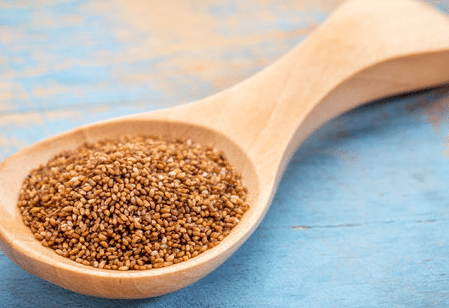Speak Up About Food: With food allergies, you have to ask questions and get over shyness when someone else – from Grandma, to auntie, to a waiter, to a teacher or a colleague – wants to serve food to you or your child with this allergy.
We teach kids to respect adults and authority, but with an allergic child, it’s important to teach them not to eat foods that others offer – unless mom or dad has pre-approved or (when they’re older) unless their sure of the ingredients. For adults, get over embarrassment, be certain to ask about ingredients, and learn to do this is an efficient, confident manner.
At School: For a parent of a child with peanut allergies, sending them off to school can be a time of anxiousness.
It’s important to communicate clearly and calmly with your child’s teacher and the principal, and to create an anaphylaxis emergency plan (also called a food allergy action plan) to protect your child. Also ensure that the teacher (and other staff e.g. a coach) is receiving at least annual training on using an epinephrine auto-injector and that he or she knows where your child’s “pen” is kept.
Become familiar with the anaphylaxis policy or law in your state or province and use it to develop a plan tailored to your child.
Be sure your allergic child knows not to share food with peers and not to take food from anyone, including the teacher, unless you’ve said it’s OK.
At a restaurant: Dining out while managing a peanut allergy may seem daunting at first, but it is possible to do so safely and enjoyably. First, find a restaurant you trust. Call ahead to ask the manager or chef about menu items and how they handle pans and utensils in the kitchen to avoid cross-contamination in the kitchen. If he or she is unable to answer your questions, don’t eat there.
When you arrive at the restaurant, tell your server directly of your serious peanut allergy and discuss menu items that will be safe to eat. If you don’t feel he or she is able to answer your questions properly, ask to speak to the chef or the manager. Be mindful of particularly risky foods: sauces, desserts, salad dressing and items that may be cooked in peanut oil. Some restaurants will become off-limits: for example, an Asian restaurant that’s known for using peanuts and peanut oil in their dishes. And remember: when in doubt, don’t eat it.
Be prepared: Make it a rule – no epinephrine auto-injector means no food. While you’ll do everything to make sure you’re not eating peanuts, accidents happen. Make sure you always have your auto-injector on you when you eat, in case of an emergency. If your child is allergic, make sure this rule is one he or she takes seriously.
Educating Others: In order to successfully manage a peanut allergy, those around you/your child need to be aware of the allergy and the serious consequences that could result from eating peanuts.
Plan what you’ll say to others to explain this condition. Be calm, clear about the information and keep the conversation based on facts. Politely request that they help you keep yourself or your child safe. You’ll often find that once a person understands about food allergies and anaphylaxis, they’ll be more than willing to help out. Be mindful that there is a learning curve, and don’t expect people who don’t live with peanut allergy to absorb it all as quickly as you have.
A final note: Peanut allergies are one of the most common allergies, especially in kids, and are widely recognized. This can be beneficial, as many people are aware of their severity and many products exist that are “peanut-free”, often with logos on them designating them as such. With vigilance and support from those around you, you or your allergic child can safely manage a peanut allergy and lead a full life.





